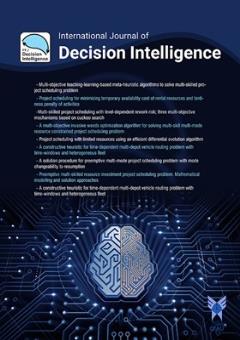Autonomous Robot Navigation in Dynamic Environments: A Temporal-Difference Learning Approach
محورهای موضوعی : نشریه بینالمللی هوش تصمیمArsalan Montazeri 1 , Sara Shademani Alishah 2 , Vajiheh Ghasemi 3
1 - Arsalan MontazeriNortheastern University,Department of project management,First Canadian Place, 100 King St W, Toronto, ON M5X 1E2.Email address: montazeri.a@northeastern.edu
2 - University of Windsor, Department of Industrial Engineering,canada
3 - Applied Mechanics Department, University of Rome Tor Vergata, Italy
کلید واژه: Autonomous Robot Navigation, Temporal-Difference Learning, Dynamic Environments, Reinforcement Learning, ,
چکیده مقاله :
In this paper, we address the critical challenges of robotic navigation in dynamic environments, increasingly relevant with rapid advancements in robotics and artificial intelligence. Traditional navigation methods, reliant on predefined paths and detailed mapping, often fail in such unpredictable settings. Our research introduces a novel approach using temporal-difference learning, a form of reinforcement learning, to enhance robot navigation in these scenarios. We explore the difficulties posed by dynamic environments, such as moving obstacles and changing terrains, and demonstrate the adaptability of temporal-difference learning in overcoming these challenges. Our method, tested through rigorous experiments, shows significant improvements in adaptability, reduced collisions, and enhanced pathfinding efficiency in various simulated conditions. These results emphasize the potential of our approach in creating more resilient robotic systems for complex situations, including urban landscapes, disaster areas, or extraterrestrial environments. This paper contributes to the field of robotics by offering a promising solution to navigate dynamic settings, opening new possibilities for robotic deployment in intricate and unpredictable environments.
In this paper, we address the critical challenges of robotic navigation in dynamic environments, increasingly relevant with rapid advancements in robotics and artificial intelligence. Traditional navigation methods, reliant on predefined paths and detailed mapping, often fail in such unpredictable settings. Our research introduces a novel approach using temporal-difference learning, a form of reinforcement learning, to enhance robot navigation in these scenarios. We explore the difficulties posed by dynamic environments, such as moving obstacles and changing terrains, and demonstrate the adaptability of temporal-difference learning in overcoming these challenges. Our method, tested through rigorous experiments, shows significant improvements in adaptability, reduced collisions, and enhanced pathfinding efficiency in various simulated conditions. These results emphasize the potential of our approach in creating more resilient robotic systems for complex situations, including urban landscapes, disaster areas, or extraterrestrial environments. This paper contributes to the field of robotics by offering a promising solution to navigate dynamic settings, opening new possibilities for robotic deployment in intricate and unpredictable environments.


